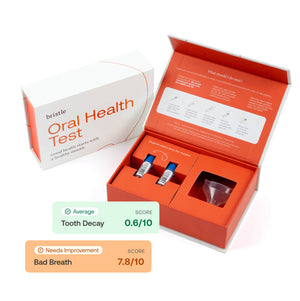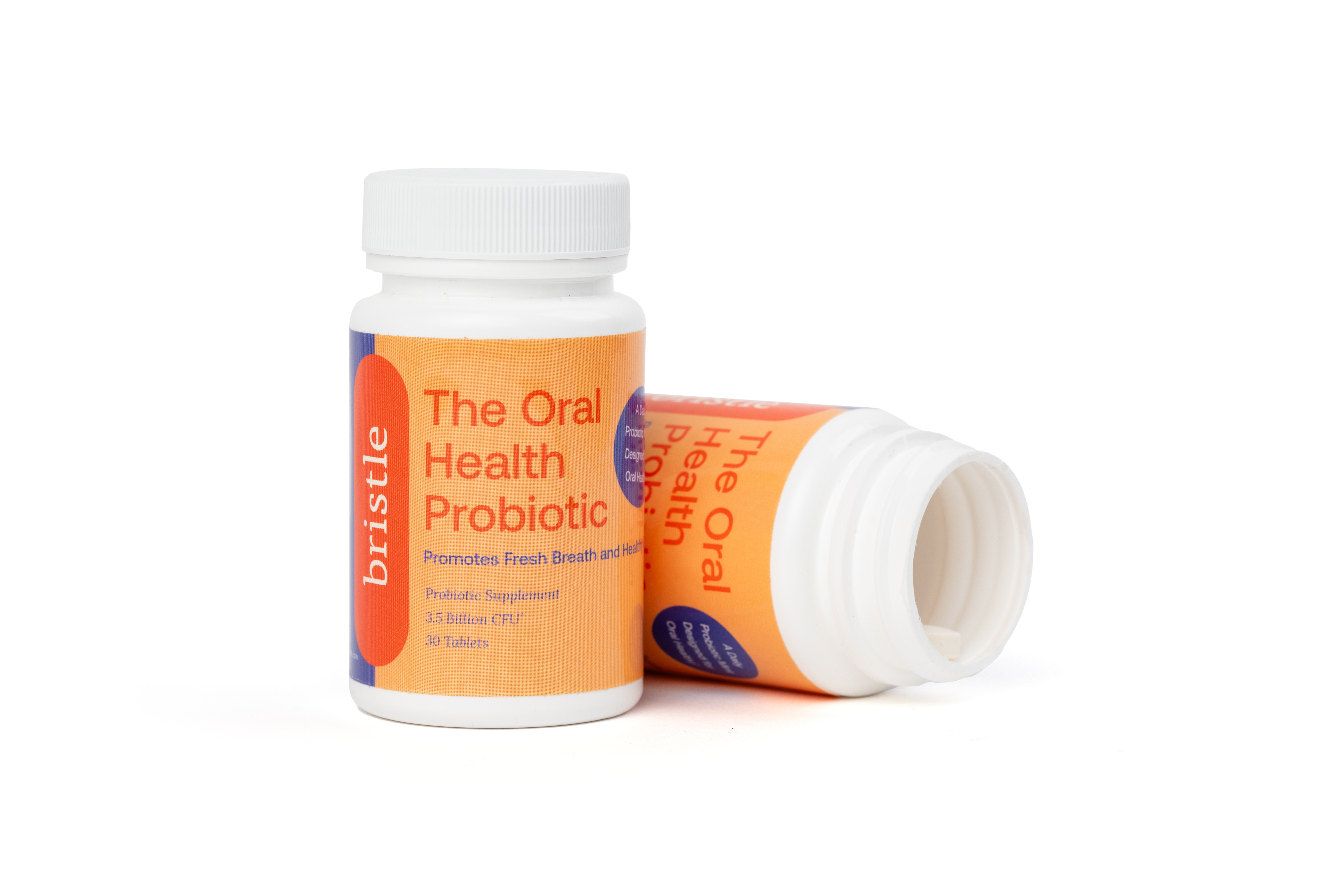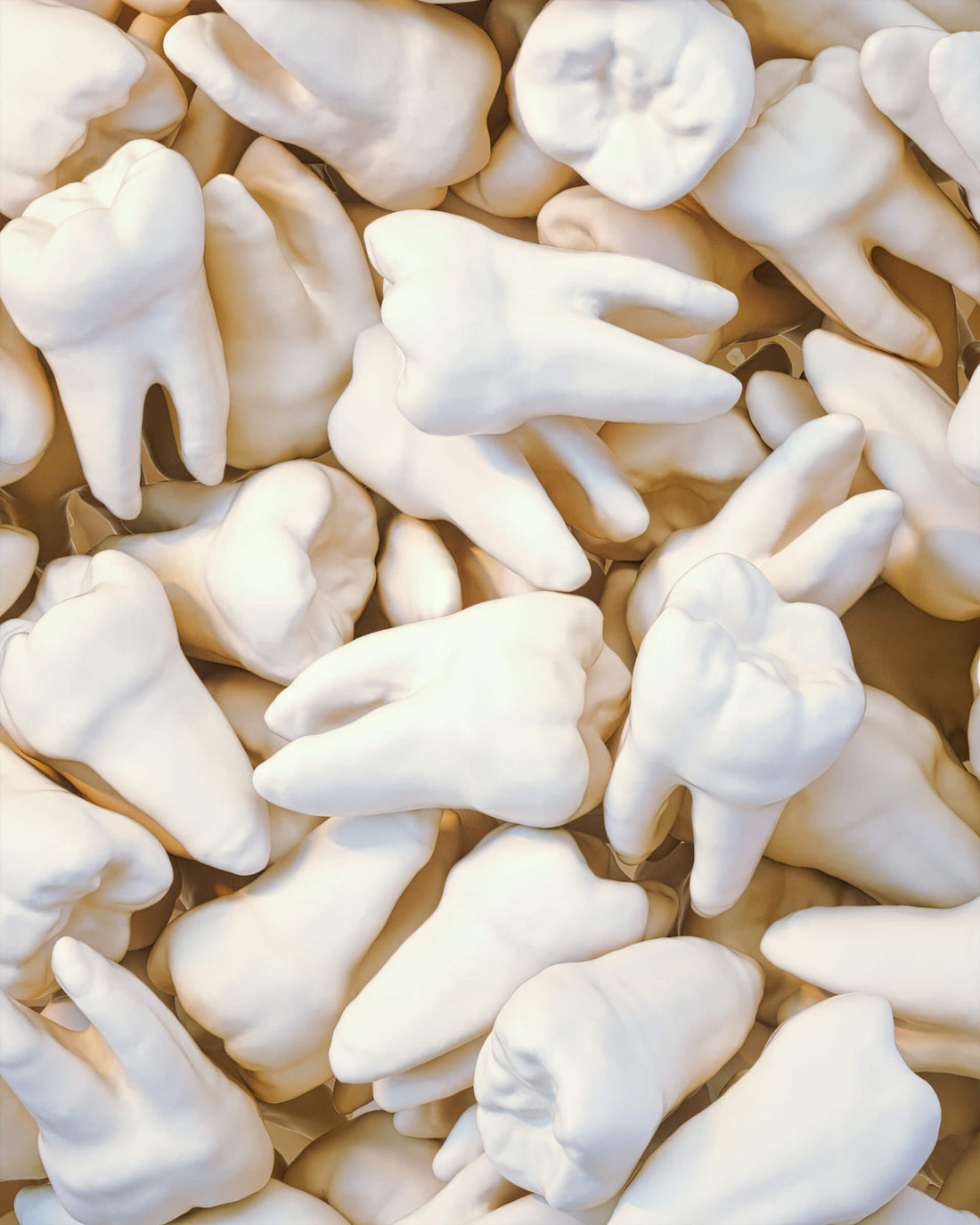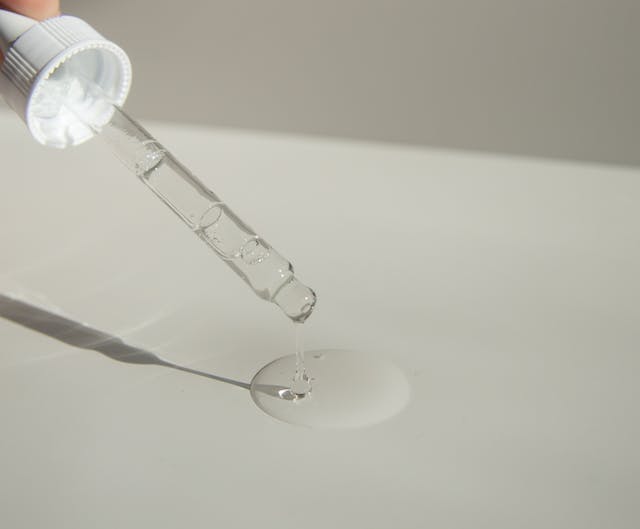Gum disease is common, with a likely 47.2% of American adults[1] having some form.
Have you ever wondered how you get gum disease? Is gum disease contagious? Can you catch it by kissing or sharing a drink with someone? Or is it hereditary and your parents have doomed (or spared) you from the ravages of gingivitis?
Let’s find out.
What causes gum disease?
First of all, it’s important to understand what gum disease is and what triggers it. Symptoms of gum disease (or gingivitis) include puffiness, inflammation (redness), and sensitivity in the gums. You may experience bleeding gums when flossing or brushing and the condition can become painful if not treated. Bad breath (you may have to ask someone) or a bad taste in your mouth are also common signs.
Gum disease is caused by too many bad bacteria thriving and multiplying in your mouth. Sticky plaque and later, hard tartar can form on your teeth if you don’t regularly clean them. These substances provide a safe place for these bacteria to sit on your teeth for a long period of time and prosper, all while damaging teeth and gums.
This is why people with poor oral hygiene routines are at higher risk of gum disease. Genetic factors as well as the state of your immune system have an effect as well.
If gum disease is left untreated it can develop into periodontal disease which can eventually lead to tooth loss.
Which bacteria cause gum disease?
Living in your mouth are over 6 billion bacteria[2], including some 700 different species of oral bacteria. Many of these bacteria are helpful for promoting oral health and keeping your teeth strong. Many more are free-riders but don’t do any harm. Unfortunately, a small number of strains of bacteria can cause gingivitis, cavities and other oral health issues.
These disease-producing bacteria[3] (also called pathogenic bacteria) include ones with delightful names such as A. actinomycetemcomitans, P. gingivalis, P. intermedia, and B. forsythus, among many others. You will note that gingivalis uses the same root, gingiva, which means gums, as gingivitis. This tells you these are gum-attacking bacteria.
Is gum disease contagious?
Here’s the big question that may have popped into your head. Can you catch gum disease through kissing?
Strictly speaking, gum disease isn’t really contagious. However, the bacteria that cause gum problems can be spread from person to person.
This can happen through kissing, drinking from the same cup or straw, sharing eating utensils, or any other activity that shares saliva between two people. The bacteria can hitch a ride along with the saliva from the first person and be transferred to the second person.
However, there is no hard rule about the second person developing gum disease. A person with a good dental health routine is unlikely to develop any problems. The reason for this is that not very many bacteria are passed this way, and that good dental habits destroy them before they can begin their nefarious work.
Is gingivitis contagious?
Gingivitis is an early form of gum disease that can cause gum irritation, bleeding, and bad breath. Bacteria that cause gingivitis can also be transmitted from person to person, meaning the bacteria contagious.
Is periodontal disease contagious?
Because periodontal disease is simply a severe and progressed form of gum disease, the answer is the same as for other gum disease. You can transmit the bacteria that cause gum disease, but the disease itself is not strictly contagious.
Is gum disease hereditary/genetic?
Is gum disease genetic? Are your genes or hormones to blame for your dental problems?
Genetics has some effect[4] on your risk of gum disease. That is why sometimes even people with good dental hygiene can develop gum disease and other people who barely take care of their teeth are doing fine.
However, a good oral care routine is important for everyone. If your dentist identifies you as being at higher risk of gum disease, it is vital to be even more vigilant in caring for your teeth.
Can you pass gum disease to your kids?
Yes and no. If you are more susceptible to gum disease because of your genetics, you can pass this susceptibility on to your kids.
Furthermore, if you have an active case of gum disease and kiss on the lips or share drinks or food with your kids, you can pass the bad bacteria to them. If they have poor oral hygiene habits or are genetically more susceptible to gum disease, this can create a hospitable environment for the bacteria to multiply.
So yes, you can pass on a propensity for gum disease and the bacteria that cause it. However, you can’t directly pass the disease. Just because your child has been exposed to someone with gum disease doesn’t mean they will develop it.
Keeping each other safe from gum disease
Though gum disease is common, it is also fairly simple to protect yourself. Regular tooth brushing and flossing go a long way towards keeping your mouth healthy. Visits to the dentist for a deep cleaning every 6 months further decrease your chances of developing problems.
Eating a healthy diet also helps. Sugary foods and drinks give bad bacteria exactly what they need to thrive in your mouth. However, crunchy fruits and vegetables can help remove plaque and make it harder for the bacteria to grow. Acidic foods or beverages (hello, lemonade or gin and tonic) also favor the growth and multiplying of bad bacteria. Alkaline foods like cucumbers discourage them. Bear that in mind when you choose what to float in your water.
Find out if you are at risk for gum disease
Are you now wondering about the types of bacteria that are living in your mouth? Send us a saliva sample today to find out! We can find out if you have too many of the bacteria that have been linked to gum disease, tooth decay and other oral diseases. The sooner you take up arms against the bad bacteria in your mouth, the more easily you can win the battle.
[1] "Periodontal Disease | Oral Health Conditions | Division of Oral ...." https://www.cdc.gov/oralhealth/conditions/periodontal-disease.html. Accessed 11 Jul. 2021.
[2] "Bacteria in Your Mouth Can Affect Your Brain - Healthline." 5 May. 2019, https://www.healthline.com/health-news/bacteria-in-your-mouth-can-find-its-way-to-your-brain. Accessed 11 Jul. 2021.
[3] "Dental plaque revisited: bacteria associated with periodontal disease." https://pubmed.ncbi.nlm.nih.gov/15143484/. Accessed 11 Jul. 2021.
[4] "Gum Disease Risk Factors | Perio.org." https://www.perio.org/consumer/gum-disease-risk-factors. Accessed 11 Jul. 2021.






